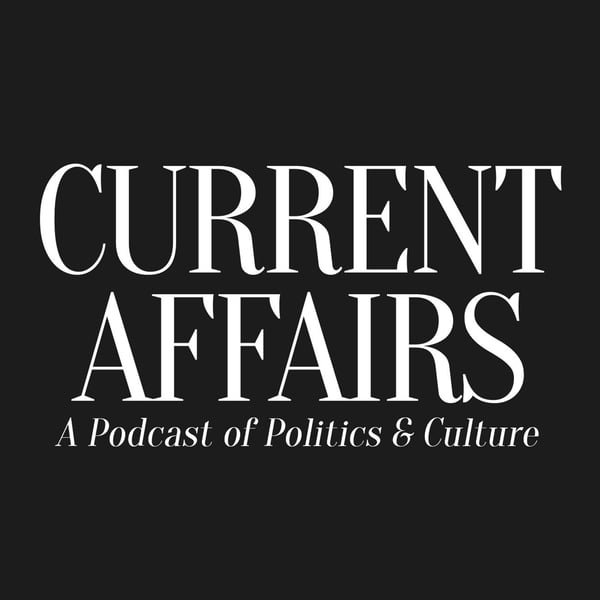PREVIEW: Corey Robin on Clarence Thomas
Current Affairs
Current Affairs
4.4 • 645 Ratings
🗓️ 7 November 2019
⏱️ 2 minutes
🧾️ Download transcript
Summary
Transcript
Click on a timestamp to play from that location
| 0:00.0 | And his grandfather was a, you know, sounds like by all measures, an extraordinary figure, |
| 0:05.1 | a real sort of self-creation, very powerful man who pulled himself up by his bootstraps |
| 0:10.9 | and ended up owning his own business and amassed a certain amount of wealth as a small |
| 0:16.2 | businessman and managed to buy some properties and rent them out and became a figure of some importance |
| 0:22.2 | in the black community in Savannah, but was really kind of a classic figure of iron discipline |
| 0:27.9 | and very stern authority. And for Thomas's purposes, and there's some debate about this, |
| 0:35.3 | which we can get into if we want, he credits his grandfather, |
| 0:38.6 | Myers-Anderson, with really being the person who transformed him and made it possible for him |
| 0:43.9 | to become the person he became. And then at the age of 19, really, he heads north to Holy Cross. |
| 0:50.6 | It's in 1968. It's really his second year of college because he had started for a year in |
| 0:55.0 | Missouri. He was recruited to Holy Cross as part of an effort to integrate the college. And he's one of, |
| 1:00.8 | I think, 18 young black men who are recruited there. And he's one of the poorest of them. And it's a |
| 1:06.1 | pretty amazing cohort of individuals, one of whom includes Edward Jones, the novelist who, you know, |
| 1:11.4 | is a Pulitzer Prize-winning novelist, Stanley Grayson, who's a very influential figure here |
| 1:15.3 | in New York City. It's a cohort that's going to go on to become sort of part of a, you know, |
| 1:20.3 | various kinds of power elites. And they're all fairly militant. You know, it's, as I said, |
| 1:24.4 | it's 1968. And they're in a very white environment. And they set |
| 1:30.1 | about transforming the campus. And they formed something called the Black Student Union, which has a set |
| 1:34.2 | of demands that I think for anybody who's been on a college campus and, you know, the last 40 to 50 |
| 1:39.1 | years will seem fairly familiar. But at the time was pretty transformative. Demands for more black faculty, more black |
| 1:45.5 | students, more courses in which you can study black literature and black texts. Thomas is part of this. |
| 1:52.1 | This group is both on the one hand making these demands for inclusion, but also has a very strong |
... |
Please login to see the full transcript.
Disclaimer: The podcast and artwork embedded on this page are from Current Affairs, and are the property of its owner and not affiliated with or endorsed by Tapesearch.
Generated transcripts are the property of Current Affairs and are distributed freely under the Fair Use doctrine. Transcripts generated by Tapesearch are not guaranteed to be accurate.
Copyright © Tapesearch 2025.

